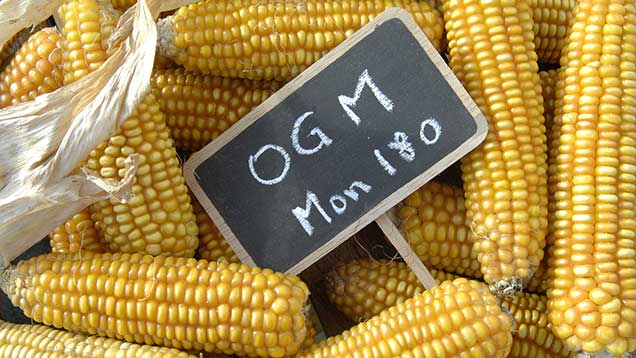EU vote gives member states final say on GMs
 ©Sioa Press/Rex Shutterstock
©Sioa Press/Rex Shutterstock New legislation to allow member states to decide for themselves whether GM crops can be grown commercially has been passed.
In a vote in the European Parliament on Tuesday (13 January), MEPs agreed legislation to allow individual member states to restrict or ban the cultivation of GMs on their territory.
The agreement in Strasbourg negotiated with EU ministers was approved by 480 votes to 159, with 59 abstentions.
See also: MEPs vote to allow countries to ban GM crop cultivation
Under the laws, GM varieties or traits will still have to pass rigorous safety tests and receive EU-wide regulatory approval before they can be grown commercially.
But the legislation, which is expected to come into force this spring, will give national governments flexibility on whether GM crops, which have been approved as safe, are grown on their territory.
The UK government believes British farmers should be allowed the choice to grow GMs.
A Defra spokesman said: “We are supportive of the opportunities GM could bring for British businesses and our environment and want our farmers to have access to the best technology available.
“It is an improvement on the current situation offering greater flexibility for each country to make its own decisions.”
However, Scottish and Welsh governments remain opposed to GM crop cultivation on their territories.
Environmental lobby group Greenpeace said it was “concerned” the rules would “grant biotech companies the power to negotiate with elected governments and excludes the strongest legal argument to ban GM crops – evidence of environmental harm”.
Commenting on the decision, Friends of the Earth senior food campaigner Clare Oxborrow said it was a “double-edged sword” because it could allow nations such as Scotland and Wales to ban GMs, but “open the door to GM crops being grown in England”.
She added: “Successive UK governments have consistently championed GM crops and food – despite the fact that this technology has been hugely overhyped and delivered little.
“GM crops are not the solution to the food and farming challenges we face. “Instead of continuing to back this technology, UK ministers should give their support to resilient and sustainable systems that boost our health, economy and environment.”
Currently, only one GM crop – Monsanto’s insect-resistant maize variety MON810 for animal feed – is grown commercially in the EU, mainly in Spain and Portugal.
An additional seven varieties GM varieties are in the pipeline and they could find their way into fields as early as next year.
In the UK, no GM crops are being grown commercially. But Rothamsted Research is testing whether GM camelina plants can produce omega-3 oils.
The Soil Association warned the use of GM crops in the USA has led to huge problems with resistant weeds and an increase in pesticides.
